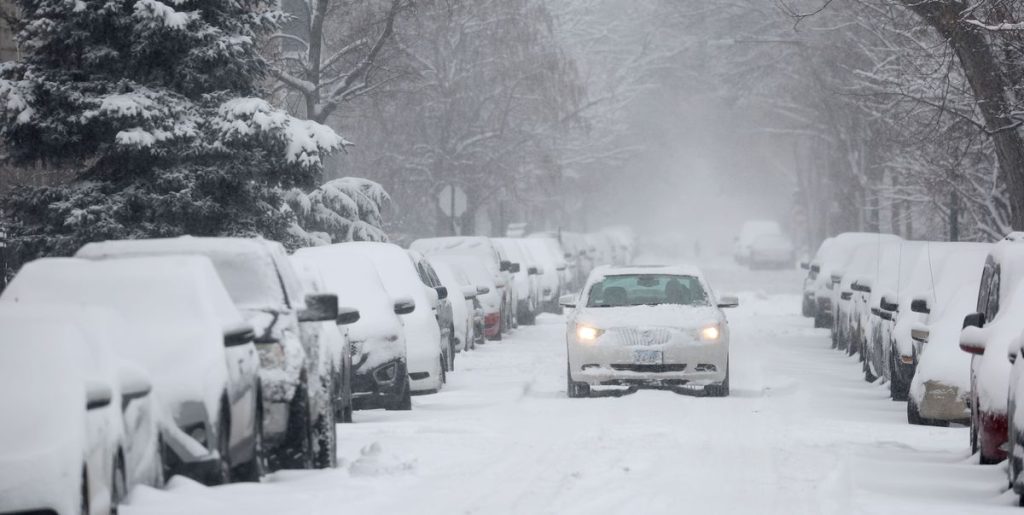City of Chicago Towed Nearly 250 Cars on First Night of Winter Parking Ban

Chicago put its winter parking ban into effect on December 1—and towed nearly 250 cars for breaking the rules on the first night alone. The ban takes effect on 107 miles of road throughout the city, regardless of snow, with a further 500 miles of road parking available to be banned in the event of two or more inches of snowfall. (The photo here depicts a typical Chicago winter scene from last February.)Any unlucky violators are forced to pay a minimum $235 for their mistake, a figure that includes a $25-per-day storage fee.
If you are one of 242 unfortunate Chicago residents, you may have gotten up on Thursday morning, brewed your morning coffee, and walked outside to find that your car was no longer where you had left it the night before. Fortunately, the missing cars weren’t actually missing: they had been towed by the city due to the return of Chicago’s winter parking ban, which went into effect on December 1, blocking 107 miles of roads from parking between 3:00 and 7:00 a.m.
Every year between December 1 and April 1, Chicago puts an overnight parking ban on more than 100 miles of roads, regardless of weather. A ban of a further 500 miles of Chicago roadways can be put in place anytime throughout the year when more than two inches of snow have fallen—although, according to the city government’s website, the larger ban is rarely invoked.
Prime Parking Will Cost You
Making the mistake of not moving your vehicle to a legal parking spot is costlier than a trip to the impound lot. Violators are on the hook for a $150 towing fee, $60 ticket, and $25 per day in storage fees. Assuming you are in town and available to recover it immediately after your vehicle gets towed, that adds up to $235 in fines.
Local laws have a lot of variation, so we can’t give a clear picture of what your local laws will look like, though Chicago is not the only city with parking laws that change in the winter. If you live somewhere that regularly sees snowfall in the winter, it is more than likely there are local laws in place to accomodate plows. Some cities only change parking laws when a snow emergency is put into effect—including Ann Arbor, Michigan, home of Car and Driver’s editorial office. Others, much like Chicago, put laws in place on a standing annual basis. If you regularly park on the street, it’s important to check out your municipality’s website and know the local guidelines.
This content is imported from OpenWeb. You may be able to find the same content in another format, or you may be able to find more information, at their web site.



